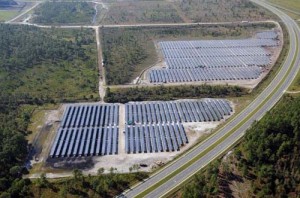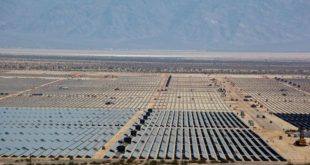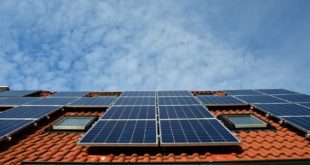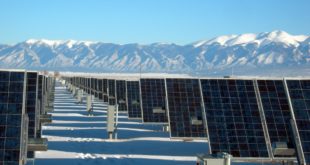Part 3 of our discussion with Michael Gorton, CEO of Principal Solar.
Part two is here, part one here
We continue our discussion about mass market solar energy development with Michael Gorton. Today we are talking about the impact that wide spread solar development can have on jobs and growth of our economy.
Kevin: If you could, before we close here, I want to let you go and I appreciate your time. Could you talk a little bit about the numbers in terms of employment in the solar industry and what maybe you see as a projection of that growth?
Michael: Here’s what we in the United States are good at. We are good at research. I think we still own the industries silicon production, but I think the manufacturing is going to stay probably in China. I didn’t say this a little while ago, but if you compare what we invested in Solyndra, we the American public, be it the tax payer or the financial industry, was $1.6 or $1.7 billion.
The Chinese in less than half of that time period – our Solyndra investment was almost three years. In the last 16 months the Chinese have invested $30 billion in that same sector. I don’t think we’re going to be able to compete with that.
Again, my prediction is there will be a lot of solar generation companies that are building small plants, but companies like mine will come in and roll those up. We’ll see what is now the smaller builder/owner/operators will become larger and larger and larger.
The biggest impact that solar will have will be cheap, clean energy in the United States. I don’t think that it’ll be hundreds of thousands of jobs. I think that it’ll produce, tangentially produce hundreds of thousands of jobs because of the cheaper electricity.

Michael: No, I don’t because at the end of the day they are building facilities that if they’re not selling for less than or equal to grid parity, they won’t have buyers. We’ll use natural gas because we’ve got plenty of it.
If they’re building panels that are at or below grid parity, we will buy it because it will make economic sense.
Once we buy those panels from them, we’re done. As I said, it’s a rock that turns sunlight into electricity. There are no moving parts. We don’t even know how long they last, but they’re willing to give 25 year warranties on their parts because there are no moving parts.
I’ve been to China a few times and they do business different than we do. We have to be a little bit more careful than some of the business we do in the United States, but I’ve made some good friends over there and they’re pretty good businessmen.
It’s kind of funny for me because I’m old enough to remember Mao Tse-Tung being in power. I’d go to China and have people that I consider to be friends over there lecturing me about capitalism. It’s kind of interesting.
They say, “Now, you guys used to be the greatest capitalism in the world and now we’re becoming that. You need to get busy so you can compete with us.” I think that’s funny and I like it.

Kevin: Absolutely. I happen to think there’s a certain irony. Five, ten years ago people would point to anybody who wanted to say solar and some of these other alternative energy options would help. They would always point and say, “There’s always going to be China polluting the heck out of the world with their dirty power generations and their massive amount of people.” There’s a certain irony that now they’ve invested this huge amount into solar and they do still have dirty coal fired power plants, but they’re making this major contribution to the development of solar now. It seems an ironic twist.
Michael: You asked me a question about jobs and I think the Chinese government and the capitalist that are investing in solar in China see a lot of jobs because as I mentioned right now the manufacturing process is very manual. Lots of hands on and so, you see campuses, huge half mile square campuses of manufacturing facilities specifically for one solar power company and lots of people earn their monthly wages from those facilities.
The Chinese government and the capitalists in China have recognized this, so I think they consider it to be a good investment. The only reason why it’s not a huge issue, no matter who you look at the Chinese, is because when you buy those parts and have them installed, you don’t have to have the relationship anymore.
I’m not saying we won’t. I think we will. I’m hoping that this is the beginning of better and more fundamental trade agreement between the United States and China. That’s me hoping and not really knowing anything, but again I’ve made friends over there and generally they’re good people just like people in the U.S. are good people.
Kevin: Michael Gorton, CEO of Principal Solar. Thank you very much for joining us today at Alternative Energy HQ and sharing your perspectives on the solar industry development and look forward to maybe chatting with you again as we follow along in the development of this grid parity.
Michael: Okay Kevin. Appreciate your time.
 Alternative Energy HQ solar power for homes, wind energy, and bio fuel issues
Alternative Energy HQ solar power for homes, wind energy, and bio fuel issues





